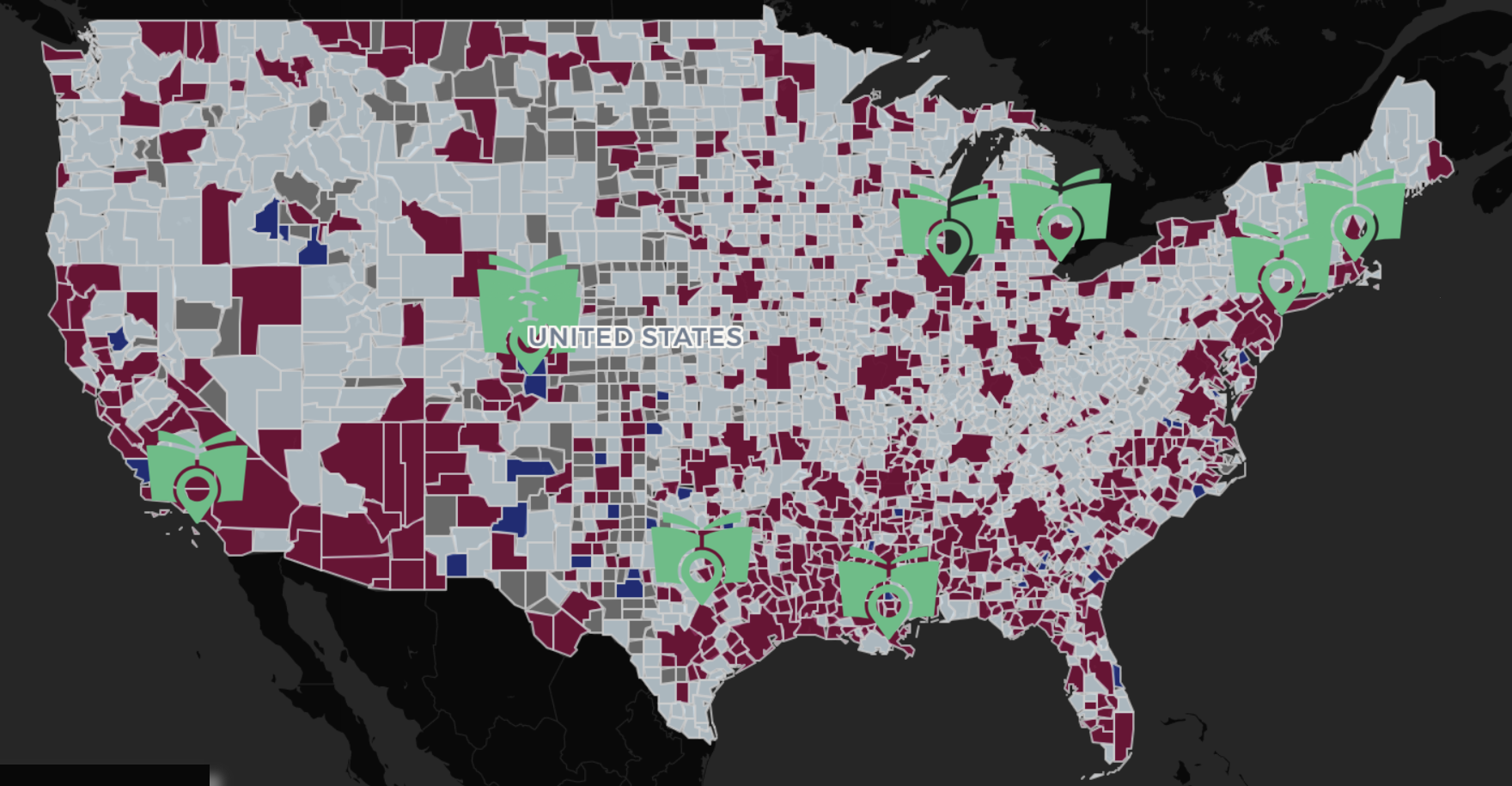
Co-founder of Conscious Community Connectors, Fatima Elkott shares how OBI's recent North American Equity Data convening has impacted them. This is an excerpt of Elkott's first-person narrative which was initially published in full on May 7 here.
I've been sitting with so many thoughts after attending OBI's North American Data Equity Convening [April 30] that I needed to write them up and share them.
First of all, I just want to take a moment to say thank you to the Othering & Belonging Institute at UC Berkeley for continuing to meet the moment and hold such powerful spaces. From attending Jose Richard Aviles' Reimagining Urban Planning Webinars, to the Arab Women and Feminist Visions for Equity and Belonging series, to their blog We Belong to Each Other: A Call To End the Violence, I have truly found a virtual space for belonging with OBI.
In these challenging times, [OBI] has continuously risen to create these spaces that do not just talk about belonging, but actually stand on business and embody showing what it looks like in action.
As always with OBI spaces, my favorite corner is in the chat box. It's always full of awesome people from all over the world connecting, sharing, and building together while live reacting to what is going on in the panels. It feels like solidarity, like finding your people in the craziness, and this summit definitely was channeling that energy.
Something that I wanted to specifically highlight was all that Latine representation on the panels. It meant a lot to see how intentional they were in creating space for full and authentic representation of Spanish speakers and I loved how Jose Richard and some of the other panelists like Monica [Meltis] and Hilda [Landrove] casually switched between English and Spanish — it felt just so... real. This is how we actually communicate in our safe spaces and seeing them not code switch, but just be themselves on such an "official" and public platform was so reaffirming.
It's something so small that again, creates that genuine space for belonging.
If you don't have time to watch the entire recording, I at least recommend tuning into Ashlin Malouf - Gashaw's closing remarks as she really did a good job recapping the summit at a high level.
I also love a good opening remark, and I thought that john a. powell did a beautiful job in grounding this summit in the idea that everything we are doing is working toward making belonging the norm. It set a good tone on how data can tell the story of whether that belonging is happening, or not.
Harnessing Data For Social Justice
The first panel, moderated by Hilda Landrove started things off strong.
We first heard from Adiba Hasan on her work with the Institute for Canadian Citizenship / Institut pour la citoyenneté canadienne (ICC). Her work overall with the dashboard is super interesting- I love how easily and beautifully it makes this data public, while also being a fun and intuitive dashboard to navigate.
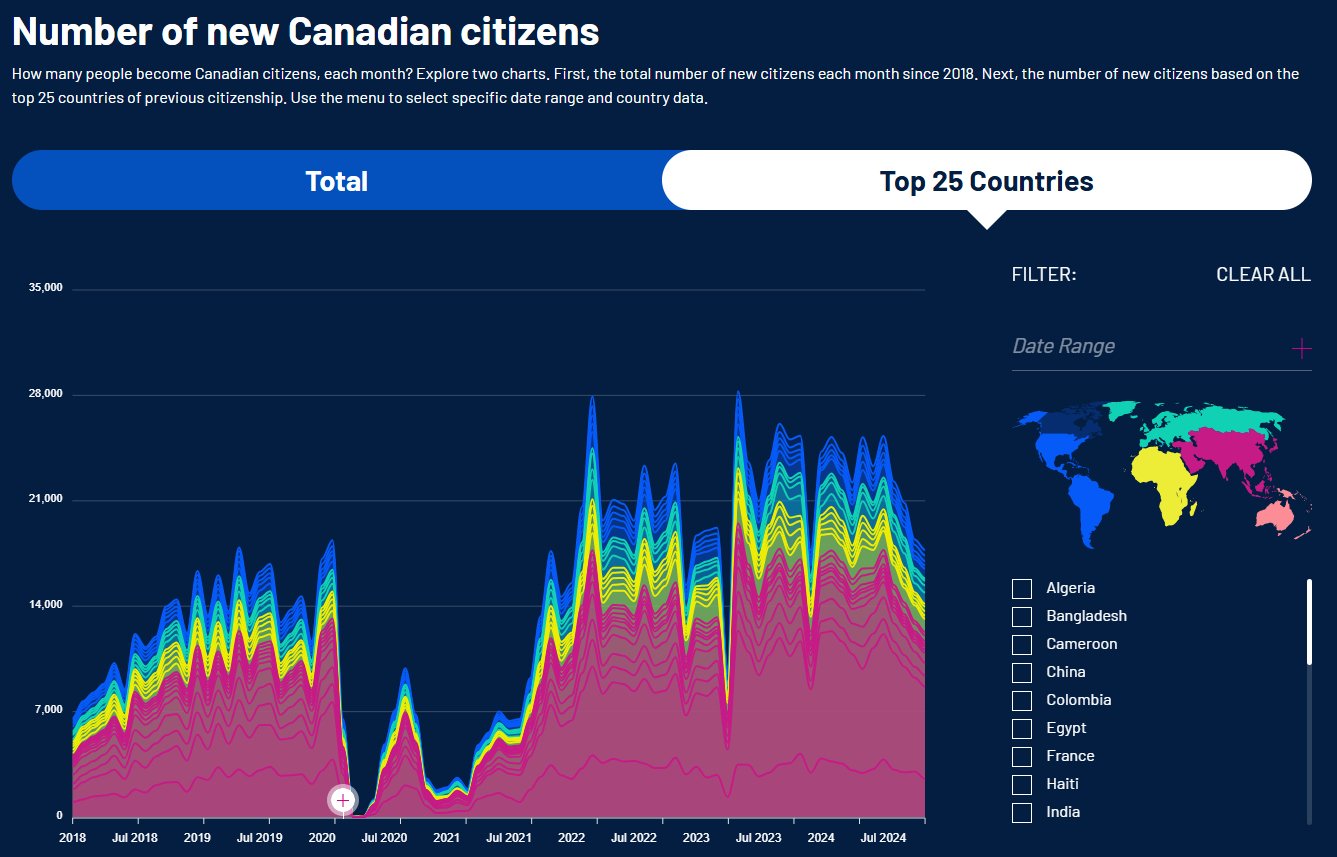
Many of us in the chat had lots of questions on how to do this work with such a vulnerable population in a way that would not put them in harm's way, and I appreciated her response on how important it is for the people collecting and sharing data actually be from the communities they are trying to reach. What really stuck with me was her sharing that because she is an immigrant herself, she was able to open the conversation around the immigrant experience for this research in an authentic, grounded way.
This resonated deeply because when [my colleague] Jason Gonzalez and I were doing work in Wimauma, Florida (with mostly undocumented migrant workers from Latino America)- it was solely because of our lived experiences and identity that we were able to even have initial conversations from members of the community.
Adiba reminded us that data is what grounds us and allows us to be able to have the power to not be manipulated or polarized. It made my heart so happy when she ended her time saying that this work is about seeing immigrants as humans, not just numbers — a message that is a little extra needed these days.
I was so inspired by Mónica Meltis Vejar's work with Data Cívica. I’m very glad she was included on the panel because she centered on Feminicide and violence against women, perspectives that often get shut out and ignored — not just in Mexico — but globally.
For those who speak Spanish, you should totally check out their incredible report "Datos Para La Vida."
Moníca's point on the importance of the contextualization around the data to tell stories was really powerful. She showed how, before the war on drugs, most women were killed at home and by knives or other “armas blancas,” but now more women are killed in public spaces and by firearms. She explained to us that this change in the data not only told the stories of the victims and their perpetrators, but actually showed the systemic shifts (the War on Drugs) that occured in the country that led to this change.
Moníca closed with the pertinent reminder that we need to bridge the gap between the people who are generating data and the people who are using it because that's how we make sure that the analysis and application of the data is actually useful for real social change. For me, this was personally the message I needed from this space, because that's the whole reason why we do this work in the first place, and I was very grateful for her #micdrop moment in closing it out with that.
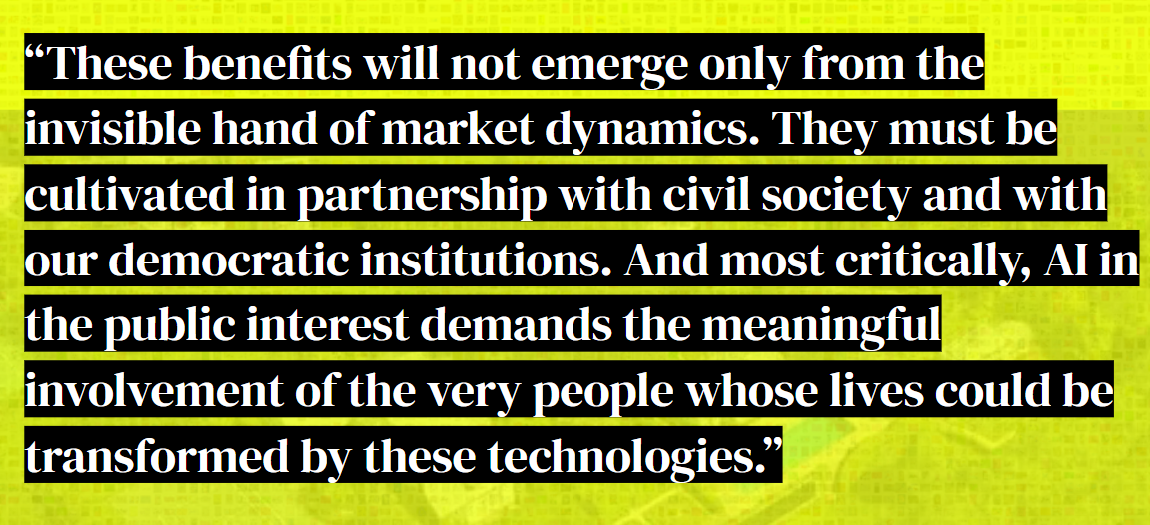
Lauren Klein's presentation on Artificial Intelligence was so thought provoking as she taught about both the dangers and benefits of AI.
My favorite part of her presentation was her point about always starting your work with an analysis of power. Rooting everything in first going to the community– before the questions are even asked – is what truly ensures the community has ownership. It was really powerful to see this level of co-creation talked about in this space – it's a process that I personally try to root so much of our work in, but one that still feels like a battle to get others to fully commit to.
Innovating Equity Solutions with Data
The second panel of the summit was also incredible! Moderated by Amanat Khullar.
I was struck by Rachel Wuttunee BA, MCRP's whole presentation to be honest. I really loved how she began by describing how she first worked with at-risk populations and came to the realization that there are systems and processes in place that exist that make it hard to be able to truly support that population. Anybody who has worked in the nonprofit sector, education, or social work is all too familiar with the phenomenon. It was really affirming to hear how she took that experience to the next level and decided to study Urban Planning so that she could better understand and effect how these systems worked. This was wild to hear because I had the same epiphany in my work and it was just really cool to hear that from her.
After doing some research on her work (because of course, I had to), I was able to learn more about her research on Indigenous equity data and substance use, and how she’s using data to push for justice and systemic change.
Her presentation at the summit showed how her data analysis went into whether measures taken actually had positive impacts on indigenous folks, and weren't just performative: something that I really have never seen a public agency spearhead before. It was dope to see that out of this they came up with a response report that directed staff to build a cross-department implementation plan and a community-led evaluation plan... cue the heavenly choir because this is the holy grail!
One of the biggest takeaways I wanted to share from Rachel was how she connects with the city departments to encourage them to be aware of systemic harms they may have (consciously or not) have done and leave it up to them to decide whether they want to be inactive or move forward.
When I thought this panel couldn't get any better, Máximo Jaramillo-Mass proved me wrong. Máximo showed beautifully how social media is a way to democratize data, especially when it comes to public perceptions.
I thought that his work on narratives around poverty was something that really needs to be talked about more everywhere. He called out the harmful narrative that poverty is a mindset (something I’ve definitely heard growing up in a Latino community) and reminded us that we need to understand the systems and structures that create and maintain poverty.
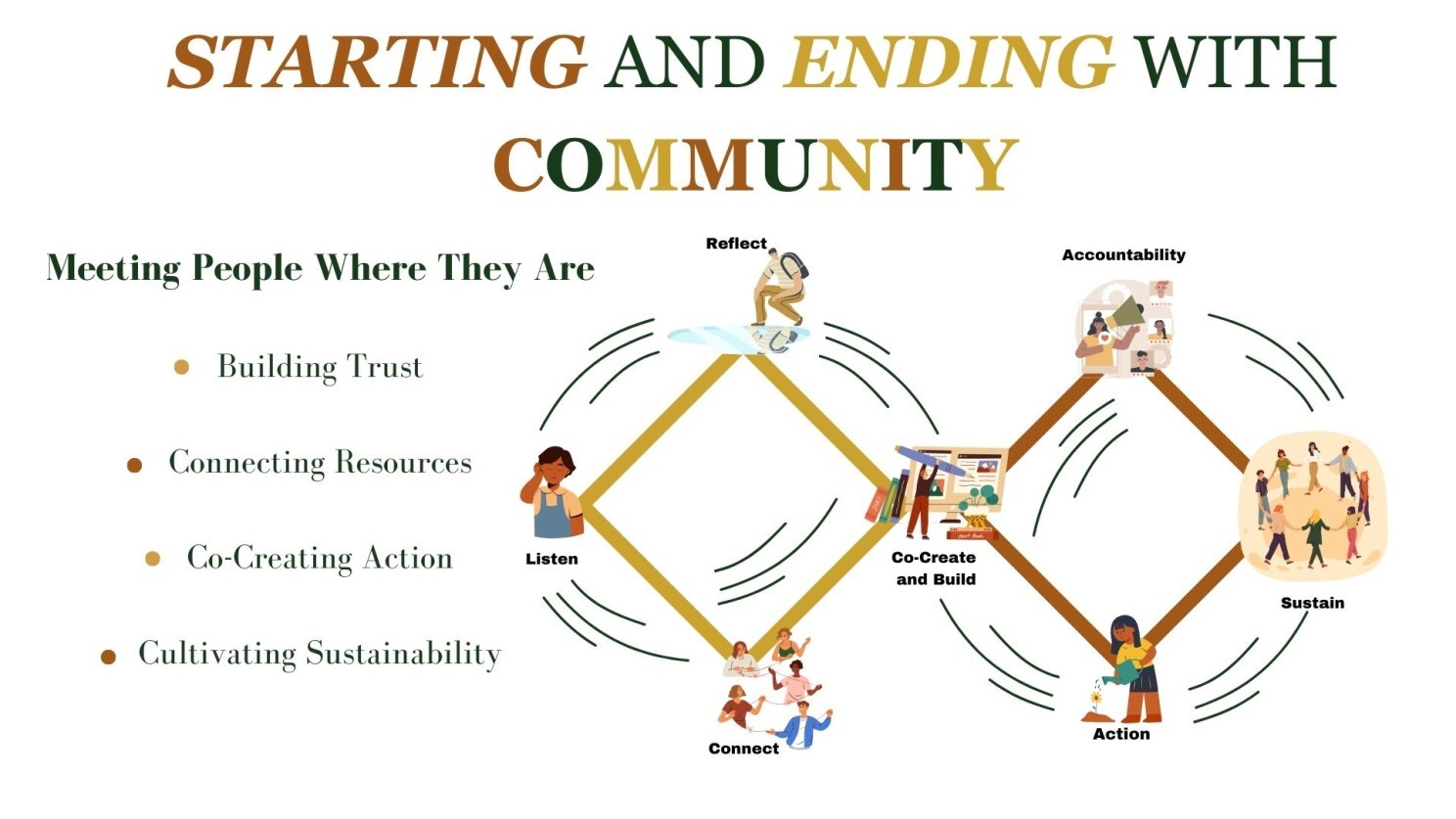
One of my favorite points that Máximo made on this was that this is mostly because people live in "class bubbles" and without real interaction across classes, people underestimate inequality.
This is heavy work to try and communicate with people, which is why Máximo's work with "Gatitos contra la Desigualdad" is iconic. He showed us how memes and social media are actually really powerful educational tools - which is genius! He explained how they break down the complex and "cold" data and challenge these harmful narratives in ways that are relatable, and engaging. We can't keep these things locked up in academia or government reports, this work belongs in public spaces, on platforms people already use, communicated in ways people actually understand.
Samir [Ghambir’s] part of the panel discussion really brought it all together.
I loved when Samir brought up that at the end of the day, the data we are collecting and demonstrating are telling stories; stories about harm, about inequities, about othering, but also about what's working. Data allows us to first identify and prove othering and then use that knowledge to build belonging.
I truly appreciated how Samir really emphasized the importance of sharing. He spoke about how data allows us to connect and share about what is and what isn't working. I think that is also the power of this work. How it can be used as something communities can track, name, follow and use as a bridge. This bridge can bridge us across issues, communities, even borders.
I thought it was so inspiring when Samir said he could see how data could bring us even across these imagined boundaries right now, like how data could show us that "different" people could realize they are going through the same othering. Realizing this is truly the first step to building belonging which is why I am literally so geeked that this was mentioned!
I loved how he framed it: that while the specific contexts may be different, the underlying intentions behind othering and the need for belonging are shared. He really made me think about what it would look like if we were able to share ideas, tools, processes, and methods across borders. Imagine if we all shared the same framework for belonging. Belonging would be the norm.
Data can then become our map back to each other, to home, and can become our blueprint for building the world where we all feel a sense of belonging.
Navigating Challenges in Equity Data
The final panel was also super interesting and I think left the summit in a grounded position.
Robert-Paul Juster shared his work which was very enlightening. He explored psychological stress through cortisol levels and how different genders, sexual orientations, and life experiences affect cortisol in the body. I loved how his work showed that data can show how intersectionality and systemic structures literally get under the skin. This level of data really took our talk on structural inequities to a whole new level. His work literally showed how oppression physically shows up in people’s health.
I thought this was a great follow up to Samir's point on how data can clearly and factually show othering. Looking at macro-level data like gender pay gaps alongside these biological markers showed that these inequities are not simply figments of the mind, but are concrete, real, and harmful.
He also shared how state-level policies can influence a person's health which allows this data to also serve as a tool for policymakers, maybe even a weapon, in order to enact change.
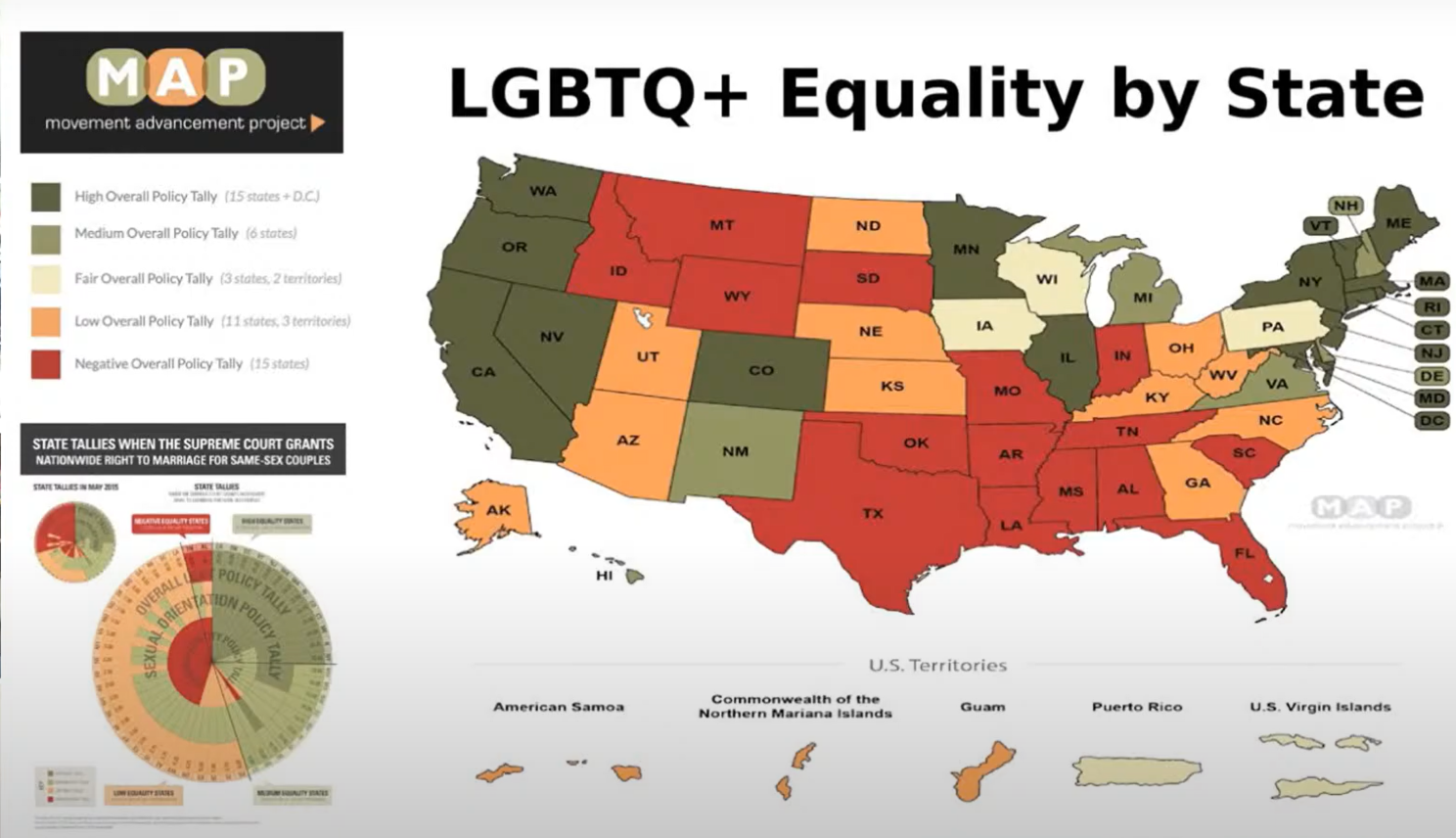
Sofía Ramírez Aguilar is a brilliant economist who offered a lot of eye-opening insight. She taught us about the energy sector and how there are these massive gaps in critical data- especially when it comes to Indigenous peoples and communities in poverty. What stuck out to me was how she named that we don't even have the data to see these communities, which means that they stay invisible in economic analysis: meaning they are also invisible in decisions. I appreciated how she connected these data gaps to systemic racism; showing how the economy ends up offering better jobs and opportunities to whiter populations because of embedded inequities.
Her points on data transparency were also so interesting, especially when she talked about challenges in how governments (like in Mexico) collect and share data. She raised concerns about how digital platforms often don’t keep historical records, which makes it harder to track change over time. That’s something I’ve thought about before as we worked to archive our work with the Tampa Heights Junior Civic Association from the past 30 years and found that a lot of the data was lost and not transferred.
I worry that there is truly a large amount of knowledge we’ve already lost because it wasn’t archived or shared- which goes to show why it is all the more important to be transparent and honest about this in the first place so we can hopefully still get accounts and data from those who have physically lived through it, while we still have them.
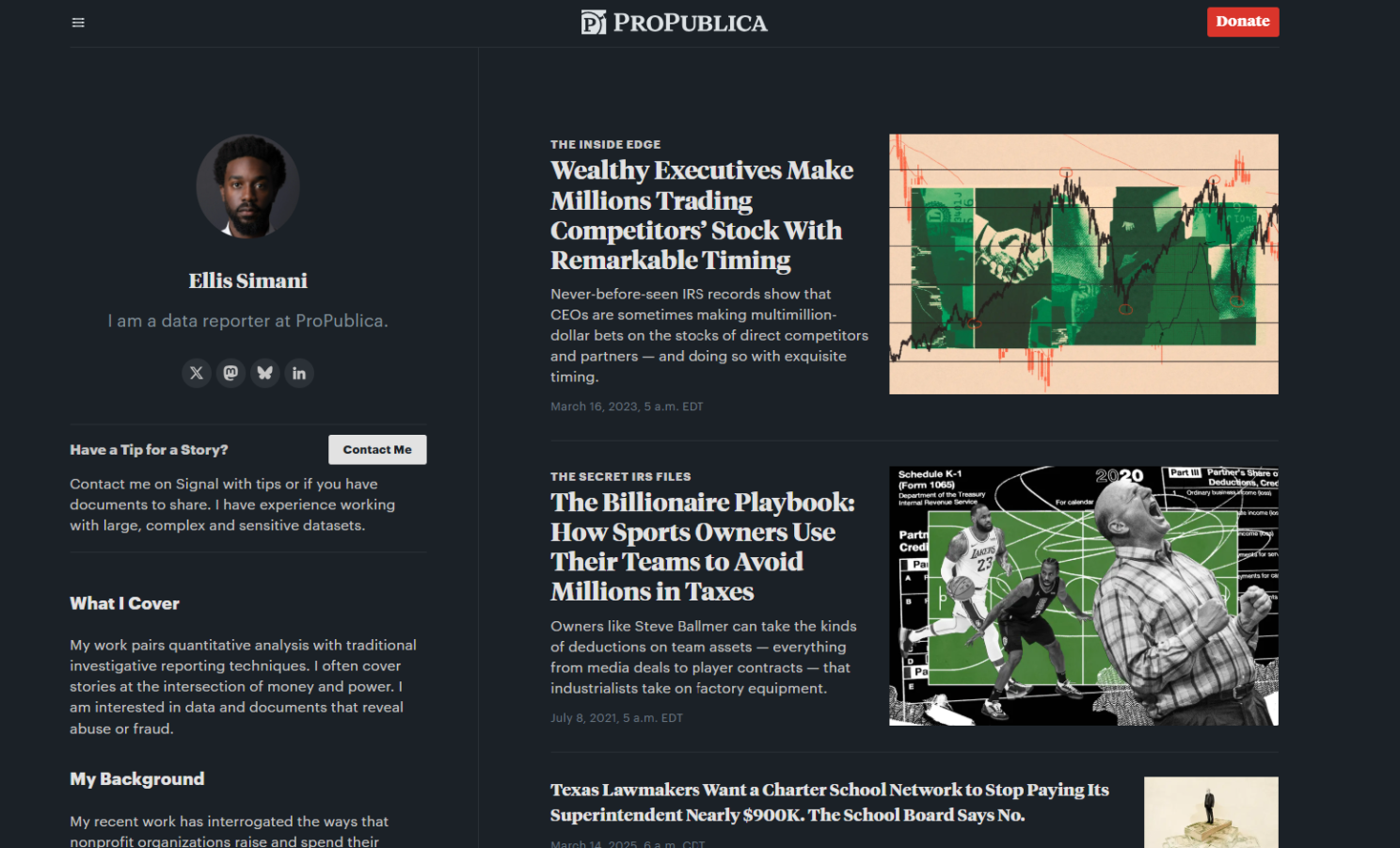
I really am glad that Ellis Simani was a part of this conversation- his perspective as a data journalist I think truly brought us to the moment and was a great way to close out this summit.
It also felt serendipitous as I have been struggling lately with quality news sources and getting to learn about ProPublica was such a gift. I love how he spoke about pairing deep data analysis with old-school investigative journalism, and how he referenced the great Ida B. Wells who left a blueprint for how to use data, records, and documentation to expose harm and fight for justice.
This last panel really drove the point home that we are creators, stewards, sharers, and dancers of data. Data drives our lives, our political decisions, our health, our perceptions of the world, and of each other. That data can be used to identify, to acknowledge, to fight, to repair, to build belonging, but it can also be used to manipulate, to evade, to hide, and to deepen othering.
It felt like the answers to a lot of the questions that myself and my peers (and I'm sure all of those with beating hearts and thinking minds) of how we got ourselves here, and what the heck can we do next?
Personally, I think we start right here.


